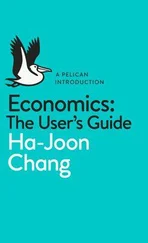Hood, Bruce - Supersense
Здесь есть возможность читать онлайн «Hood, Bruce - Supersense» весь текст электронной книги совершенно бесплатно (целиком полную версию без сокращений). В некоторых случаях можно слушать аудио, скачать через торрент в формате fb2 и присутствует краткое содержание. Год выпуска: 2009, Издательство: Constable Robinson, Жанр: Старинная литература, на английском языке. Описание произведения, (предисловие) а так же отзывы посетителей доступны на портале библиотеки ЛибКат.
- Название:Supersense
- Автор:
- Издательство:Constable Robinson
- Жанр:
- Год:2009
- ISBN:нет данных
- Рейтинг книги:3 / 5. Голосов: 1
-
Избранное:Добавить в избранное
- Отзывы:
-
Ваша оценка:
- 60
- 1
- 2
- 3
- 4
- 5
Supersense: краткое содержание, описание и аннотация
Предлагаем к чтению аннотацию, описание, краткое содержание или предисловие (зависит от того, что написал сам автор книги «Supersense»). Если вы не нашли необходимую информацию о книге — напишите в комментариях, мы постараемся отыскать её.
Supersense — читать онлайн бесплатно полную книгу (весь текст) целиком
Ниже представлен текст книги, разбитый по страницам. Система сохранения места последней прочитанной страницы, позволяет с удобством читать онлайн бесплатно книгу «Supersense», без необходимости каждый раз заново искать на чём Вы остановились. Поставьте закладку, и сможете в любой момент перейти на страницу, на которой закончили чтение.
Интервал:
Закладка:
The beliefs behind superstitious practices may be supernatural, but here’s the interesting point: they do work to reduce the stress caused by uncertainty. Rituals produce a sense of control, or at least the belief that we have control even when we don’t. The illusion of control is an immensely powerful mechanism to immunize against harm, especially if it is unpredictable. Not only do we find it hard to think randomly, but we don’t like unpredictable punishment. We all know what it’s like waiting for something bad to happen. We just want to get it over and done with as soon as possible. As a child growing up in Scotland, I remember sitting outside the headmaster’s office waiting to be ‘strapped’ for fighting in the playground. I think it was my foreign accent that made me the focus of attention. By that age, stories about the Bogeyman were no longer effective, and corporal punishment was deemed the best deterrent. The strap was a barbaric leather belt specifically designed for whipping the hands – a practice that has now been outlawed. It wasn’t the pain of being strapped that was unbearable, however, so much as the wait and the sense of helplessness. I had no control over the situation. Studies of pain thresholds reveal that humans can tolerate much higher electric shocks if they think that they can stop the punishment at any point in comparison to those who do not think they have this option. 25Doing something, or believing that you can do something, makes the unpleasant more bearable. Without the perception of control, we are vulnerable to our supersense. When adults were asked to think back to a situation when they were without control, researchers discovered that participants were much more likely to see patterns in random pictures, to infer connections between events that happened by chance and even to believe that superstitious rituals were effective. 26In the absence of perceived control, people become susceptible to detecting patterns in an effort to regain some sense of organization. No wonder those stock market traders are clutching their ‘lucky’ rabbit’s feet as we feel the full brunt of the current economic world recession. ‘Doing nothing’ is not an option. Anything that we feel can affect outcome is better than nothing, because an inability to act is so psychologically distressing.
It is not just superstitious routines that reinforce the illusion of control. For many, this illusion explains the power of the mind and wishful thinking. The Harvard psychologist Dan Wegner has shown that the same causal mechanism can lead to ‘apparent mental causation’: an individual’s belief that his or her thoughts have caused things to happen when they are closely connected in time. Imagine that you wish someone harm and something bad actually happens to that person shortly afterward. Such a coincidence must occur regularly, but it is very hard not to think that you are responsible in some way. Wegner and his colleagues found that subjects who thought ill of someone behaving like a jerk believed that they had caused his subsequent headache. In fact, the ‘jerk’ was the experimenters’ confederate, and the setup was a scam. Nevertheless, adults readily linked these two events together as if they had cursed the ‘victim.’ 27This is all the more apparent in young children, who still are not sure about the difference between mental thoughts and actions. They think that wishing can cause things to actually happen. However, Wegner’s research indicates that many adults continue to harbour such misconceptions even though they know that they should not think like this. For example, in games of chance such as gambling, people behave as if they have control when they don’t. They feel more confident about winning if they get to throw the dice. They prefer to bet before the dice are thrown rather than after. They think they are more likely to win the lottery if they choose the numbers, and so on. Such behaviour would be utterly absurd if deep down we did not think that we have some influence over events. This is because of our mind design.
Later on, I examine how mind design emerges early in development as children come to understand and predict the physical world, the living world, and the mental world. We will look at studies that prove they must be reasoning about the hidden properties of objects, living things, and their own minds as well as those of other people. I show that young children are thinking about gravity, DNA, and consciousness – all invisible to the naked eye – and that they do this long before teachers have had a chance to fill their heads with ideas. I show that this way of reasoning is very powerful for children’s understanding, but that it can also let them down, because reasoning this way about the unseen properties of the natural world sometimes leads to supernatural explanations. Children may learn when they grow up that such supernatural notions are wrong, but what if such childish ideas never really go away?
Most adults believe that when they learn something new that contradicts what they previously thought, they abandon their earlier misconceptions and mistaken ideas. However, it is not clear that this happens entirely: childish notions can linger on in the mature mind. Consider an example from the world of objects. Imagine two cannonballs of exactly the same size. One is made of light wood and the other one is solid iron that is one hundred times heavier. If you were to drop them both at the same time from the leaning Tower of Pisa, what would happen? 28Children think that heavier objects fall much faster than lighter ones. Heavier objects do land before lighter ones, but only just, and that’s because of air resistance. If you dropped the cannonballs in a vacuum where there was no air resistance, they would land exactly at the same time. As a child, I did not believe this until a physics teacher demonstrated that a feather and a coin fall at exactly the same speed in a vacuum. Most college students make the same mistake. 29The amazing thing is not that adult students get it wrong, but rather that these are students who have been taught Newton’s Laws of Object Motion and should know better. They should know the correct answer. Somehow the scientific knowledge they have so painstakingly learned loses out to their natural intuition about weight and falling objects.
The example of the falling cannonballs is important because it reveals that we may never truly abandon our childhood misconceptions when we become adults and learn new facts about the world. Some of us are more vulnerable to these misconceptions than others. Now imagine how difficult it is for us to abandon beliefs that include the supernatural. Here there is precious little evidence to dissuade us of our beliefs. If we hold childish notions about the unseen mechanisms of reality, then the difference between believers and nonbelievers may have less to do with what we have been told and more to do with our susceptibility to our own childish misconceptions. If you are someone who is inclined to believe that there are supernatural forces operating in the world, then you will interpret all manner of events in light of this way of thinking. There will be no chance occurrences. Fate and luck will explain why things happen. You will infer the presence of supernatural agents, and evil and good will become tangible forces.
WHAT NEXT?
Our lives are punctuated by bizarre occurrences. How do we make sense of them? All too often we appeal to explanations that evoke some supernatural activity even though the evidence for such activity cannot be directly observed or studied. So we are left with belief. Where do these beliefs come from? One account is based on the idea that supernatural beliefs are spread by what other people tell us. Certainly this may be true for the content of a belief – the name of a spirit or the nature of the rituals that need to be performed – but what about the basis of the belief? And why are so many of us so willingly gullible? One reason may be that it is our natural way of thinking to assume that there is a supernatural dimension to reality – the ‘something there’ that William James talked about.
Читать дальшеИнтервал:
Закладка:
Похожие книги на «Supersense»
Представляем Вашему вниманию похожие книги на «Supersense» списком для выбора. Мы отобрали схожую по названию и смыслу литературу в надежде предоставить читателям больше вариантов отыскать новые, интересные, ещё непрочитанные произведения.
Обсуждение, отзывы о книге «Supersense» и просто собственные мнения читателей. Оставьте ваши комментарии, напишите, что Вы думаете о произведении, его смысле или главных героях. Укажите что конкретно понравилось, а что нет, и почему Вы так считаете.












